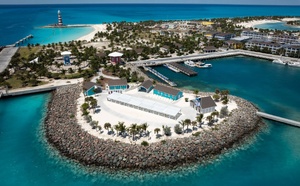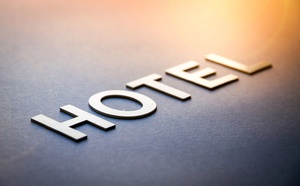Emirates
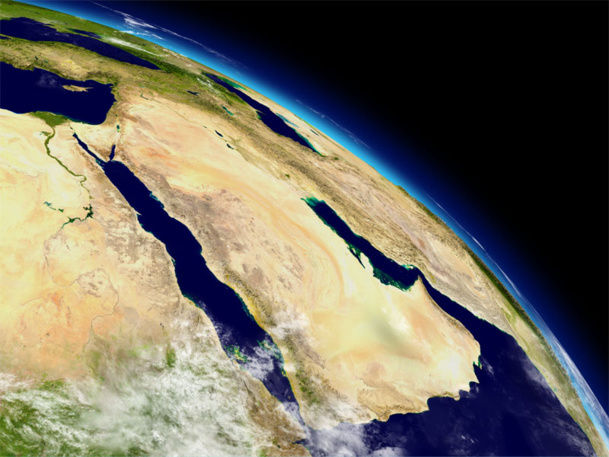
The Gulf companies may be doing very well yet they’re not devoid of flaws © harvepino - Fotolia.com
It is without a doubt, the leader in its zone, soon to become the world’s main company. It already is in terms of the number of international passengers.
It’s the company that beat all records: the largest operator of the biggest plane: the A380, fastest growth, biggest hub in Dubai, a profit that discourages other growing transporters despite the issues that the transporter is confronted due to the location of its base in the world’s most dangerous zone.
The duo who head the company since 20 years: the Cheick Al Maktoub, President, and Tim Clark, Director, is unstoppable. The last announcement to date, which is one amongst many daring announcements, was a call by Tim Clark to Airbus during the Davos Forum: “build the A 380 NEO in the elongated version, and I’ll order 100, if not, I’ll look somewhere else.”
What other air transporter has the power to give instructions to one of the two biggest manufacturers in the world?
But everything isn’t actually perfect for the company. First, its punctuality rate is quite mediocre to say the least. If I believe the statistics published by the Flight Magazine, Emirates ranks at 36th amongst the main transporters with 67.44% of flights on time at arrival, by far behind Air France: 82%, American Airlines: 83% or SAS that tops the ranking at 91%.
It is ever more upsetting that the company’s activity depends on the largest global “hub”, in the process of tripling its volume in the next 15 years. Except if passengers keep missing their connecting flights which could become very bothersome.
And, to manage its expansion plan, Emirates will need to have more rights than it currently has.
It will have to, obviously, obtain the rights of the 6th freedom between European countries and the United States. And that won’t be easy. I’ll also add that the company has a tendency to not always respect agreements which doesn’t really work in its favor.
It’s the company that beat all records: the largest operator of the biggest plane: the A380, fastest growth, biggest hub in Dubai, a profit that discourages other growing transporters despite the issues that the transporter is confronted due to the location of its base in the world’s most dangerous zone.
The duo who head the company since 20 years: the Cheick Al Maktoub, President, and Tim Clark, Director, is unstoppable. The last announcement to date, which is one amongst many daring announcements, was a call by Tim Clark to Airbus during the Davos Forum: “build the A 380 NEO in the elongated version, and I’ll order 100, if not, I’ll look somewhere else.”
What other air transporter has the power to give instructions to one of the two biggest manufacturers in the world?
But everything isn’t actually perfect for the company. First, its punctuality rate is quite mediocre to say the least. If I believe the statistics published by the Flight Magazine, Emirates ranks at 36th amongst the main transporters with 67.44% of flights on time at arrival, by far behind Air France: 82%, American Airlines: 83% or SAS that tops the ranking at 91%.
It is ever more upsetting that the company’s activity depends on the largest global “hub”, in the process of tripling its volume in the next 15 years. Except if passengers keep missing their connecting flights which could become very bothersome.
And, to manage its expansion plan, Emirates will need to have more rights than it currently has.
It will have to, obviously, obtain the rights of the 6th freedom between European countries and the United States. And that won’t be easy. I’ll also add that the company has a tendency to not always respect agreements which doesn’t really work in its favor.
Etihad Airways
Autres articles
-
 Les aéroports vont-ils tuer le transport aérien ?
Les aéroports vont-ils tuer le transport aérien ?
-
 Quelles tendances post-Covid pour le secteur du transport aérien ?
Quelles tendances post-Covid pour le secteur du transport aérien ?
-
 La case de l’Oncle Dom : privatisation Toulouse-Blagnac... prends l'oseille et tire-toi !
La case de l’Oncle Dom : privatisation Toulouse-Blagnac... prends l'oseille et tire-toi !
-
 La case de l’Oncle Dom : APG World Connect… mieux que les Assises du Transport Aérien ?
La case de l’Oncle Dom : APG World Connect… mieux que les Assises du Transport Aérien ?
-
 La case de l’Oncle Dom : on transformera (peut-être) la France mais... pas la DGAC !
La case de l’Oncle Dom : on transformera (peut-être) la France mais... pas la DGAC !
The transporter from Abu Dhabi is quite small, if we may say, with only 7 million passengers versus Emirates’ 45.
But it has ambitions and the financial means to realize them. Which is why it underwent a policy of capital entry for vulnerable companies.
It seems that it’s seizing every opportunity, without being able to determine well the direction it is taking. As of today, it has significant shares in Alitalia and Air Serbia: 49%, Air Seychelles : 40%, Darwin Airlines renamed Etihad Regional: 33,3%, Air Berlin: 29%, Jet Airways: 24% and Virgin Australia : 19,9%.
I’ll put aside the 3% at Aer Lingus.
It is of course a quick way of augmenting resources for the parent company, but its external growth holds two major issues.
First of all, how to make such disparate transporters cohabit and how to bring them to follow a joint policy when in theory it’s impossible for Etihad to dictate the strategy of companies in which it has a minority share?
Switzerland recently reminded everyone of the rules of the game when it cut the interline of the former Darwin Airways. It would need to rename all of the companies with the Etihad brand: Etihad Germany, Etihad Italy, Etihad Serbia , Etihad India etc… But that hurts the ego of the States.
There is little chance that this could happen. And it would need to cover the debt of the deficient companies at the time of the buyout.
A hard task for Bruno Matheu who was recently nominated for the hard position of managing business participations.
But it has ambitions and the financial means to realize them. Which is why it underwent a policy of capital entry for vulnerable companies.
It seems that it’s seizing every opportunity, without being able to determine well the direction it is taking. As of today, it has significant shares in Alitalia and Air Serbia: 49%, Air Seychelles : 40%, Darwin Airlines renamed Etihad Regional: 33,3%, Air Berlin: 29%, Jet Airways: 24% and Virgin Australia : 19,9%.
I’ll put aside the 3% at Aer Lingus.
It is of course a quick way of augmenting resources for the parent company, but its external growth holds two major issues.
First of all, how to make such disparate transporters cohabit and how to bring them to follow a joint policy when in theory it’s impossible for Etihad to dictate the strategy of companies in which it has a minority share?
Switzerland recently reminded everyone of the rules of the game when it cut the interline of the former Darwin Airways. It would need to rename all of the companies with the Etihad brand: Etihad Germany, Etihad Italy, Etihad Serbia , Etihad India etc… But that hurts the ego of the States.
There is little chance that this could happen. And it would need to cover the debt of the deficient companies at the time of the buyout.
A hard task for Bruno Matheu who was recently nominated for the hard position of managing business participations.
Qatar Airways
It has been showing its face since a few years and it insists on having its presence recognized.
The Qatari transporter is bigger than Etihad: more than double in terms of passengers, but still far behind Emirates.
But its director, Akbar Al Baker, is an ambitious man for himself and the company. He chose the only route available: service quality.
Sitting on a comfortable fleet of modern aircrafts, the company that launched the A 350 wants to make Qatar Airways the quality reference of air transport.
It won’t be an easy task either because his competitors from the Gulf or elsewhere won’t stop fighting for this strategy.
European companies are, unfortunately, very far from these preoccupations!
The Qatari transporter is bigger than Etihad: more than double in terms of passengers, but still far behind Emirates.
But its director, Akbar Al Baker, is an ambitious man for himself and the company. He chose the only route available: service quality.
Sitting on a comfortable fleet of modern aircrafts, the company that launched the A 350 wants to make Qatar Airways the quality reference of air transport.
It won’t be an easy task either because his competitors from the Gulf or elsewhere won’t stop fighting for this strategy.
European companies are, unfortunately, very far from these preoccupations!
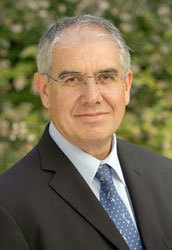
Jean-Louis Baroux, is the former president of APG (Air Promotion Group) and the creator of the CAF (Cannes Airlines Forum) which became the World Air Forum.
Air Transportation Specialist, he signed at L'Archipel Publishers '' Compagnies Aériennes : la faillite du modèle” [“Airlines: A Bankruptcy Model” – translator’s note], a book that all tourism professionals should have read.
The copyrights will be donated to charity. It can be purchased at: www.editionsarchipel.com
Air Transportation Specialist, he signed at L'Archipel Publishers '' Compagnies Aériennes : la faillite du modèle” [“Airlines: A Bankruptcy Model” – translator’s note], a book that all tourism professionals should have read.
The copyrights will be donated to charity. It can be purchased at: www.editionsarchipel.com









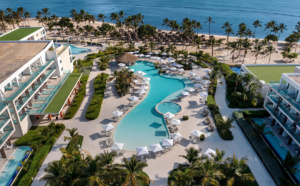



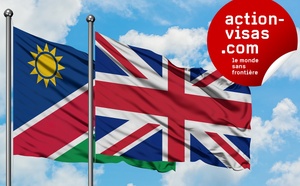
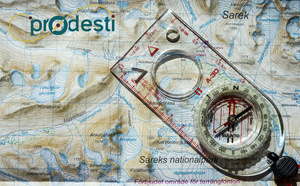





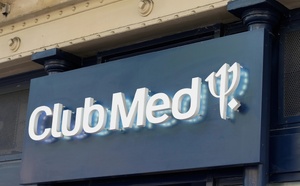

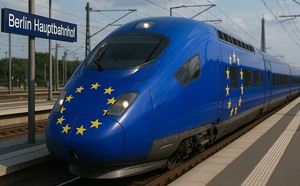


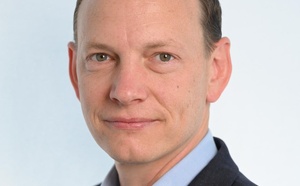
![Dysmorphie : la nouvelle pathologie des voyageurs [ABO] Dysmorphie : la nouvelle pathologie des voyageurs [ABO]](https://www.tourmag.com/photo/art/large_16_9/91780811-64431367.jpg?v=1760530927)

